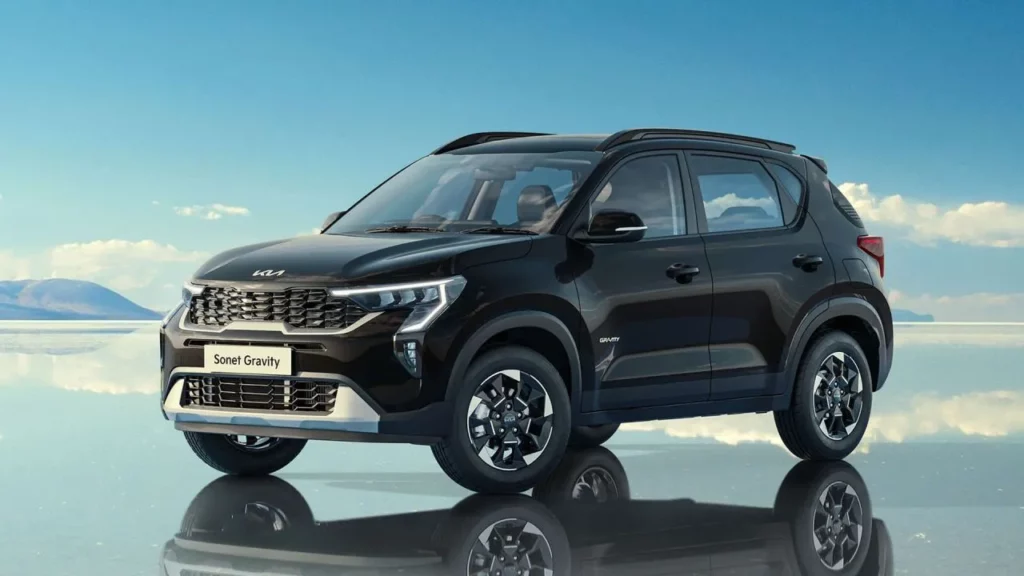
In a recent development, Kia has announced a price increase for its highly popular compact SUV, the Kia Sonet. The Sonet, which has been a strong contender in the sub-4 meter SUV segment, offers a blend of style, technology, and performance. However, with the latest price adjustment, it’s important for both potential buyers and current owners to understand how this increase might affect their decision-making process.
The Price Hike: What’s Changed?
Kia has raised the prices of the Sonet across several variants, with the amount varying depending on the model chosen. The increase, which ranges from INR 10,000 to INR 25,000, applies to both petrol and diesel variants, making the vehicle more expensive for new buyers. While the price adjustment may not seem drastic, it could have a significant impact, especially for those who were already considering a budget-friendly SUV.
Despite this price hike, the Kia Sonet remains one of the most attractive compact SUVs on the market, thanks to its premium features, sleek design, and versatile engine options. Let’s explore the reasons behind the price hike and what it means for prospective customers.
Why the Price Increase?
There are several factors that contribute to the price increase of the Kia Sonet. One of the primary reasons is the rising cost of raw materials. The automotive industry has been facing challenges in securing essential materials such as steel, aluminum, and rubber, all of which are crucial in vehicle manufacturing. These raw material costs have been steadily increasing, prompting manufacturers like Kia to adjust the final retail price of their vehicles.
In addition to raw material costs, labor costs and logistics expenses have also been rising. These factors have been compounded by global supply chain disruptions, which have affected various industries, including the automobile sector. As a result, manufacturers are finding it increasingly difficult to maintain the same price points without compromising on quality or profit margins.
Another reason for the price hike could be the enhancement of features and compliance with stricter emission standards. The introduction of new safety and emission technologies can increase manufacturing costs, which are typically passed on to the consumer. Kia, like other automakers, must meet stringent environmental regulations, and this could have driven the increase in pricing.

Impact on Buyers
For potential buyers, the price increase of the Kia Sonet may require them to reconsider their purchase plans. While the Sonet continues to be one of the best options in its segment, the price hike might make some buyers rethink their budget or look for alternatives. However, considering the features and performance the Sonet offers, many buyers may still find it worth the extra cost.
One of the key selling points of the Kia Sonet is its combination of stylish design and high-end features. It offers a range of modern amenities, including a 10.25-inch touchscreen infotainment system, a Bose sound system, wireless charging, and advanced driver assistance systems (ADAS). These premium features are often found in higher-end models, making the Sonet a strong value proposition even with the price increase.
Features and Variants
The Kia Sonet is available in multiple variants, each catering to different customer needs. Buyers can choose from a variety of engine options, including the 1.2-liter petrol engine, the 1.0-liter turbo-petrol engine, and the 1.5-liter diesel engine. These engines offer a good balance of power and fuel efficiency, making the Sonet an appealing choice for urban commuters and long-distance travelers alike.
Inside the cabin, the Sonet provides a comfortable and feature-packed environment. The SUV boasts a spacious interior with ample headroom and legroom, making it ideal for families and long road trips. The quality of materials used in the cabin is top-notch, and the SUV is equipped with several convenience features like smart parking assist, rear AC vents, and a digital instrument cluster.
Moreover, Kia has ensured that safety is a priority in the Sonet. The compact SUV comes with a range of safety features, including six airbags, ABS with EBD, ESC, and hill-start assist. These features, along with a robust build quality, make the Sonet one of the safest vehicles in its segment.
Will the Price Hike Affect the Sonet’s Popularity?
Despite the price increase, the Kia Sonet is likely to retain its appeal among buyers due to its comprehensive feature list and stylish design. Kia has built a solid reputation for offering value-packed vehicles, and the Sonet is no exception. With its competitive pricing, premium features, and attractive design, it remains a solid choice in the compact SUV segment.
For those who are concerned about the price increase, there are still some strategies to make the most of the situation. Buyers can keep an eye on seasonal discounts, dealership offers, or exchange bonuses, which can help offset the price hike to some extent. Additionally, the used car market remains a viable option for those looking to purchase a Kia Sonet at a lower cost.
Conclusion
The price increase for the Kia Sonet, while significant, is a reflection of the broader economic factors impacting the automotive industry. Rising raw material costs, supply chain disruptions, and regulatory changes are pushing automakers to adjust their pricing strategies. However, despite the price hike, the Kia Sonet continues to offer excellent value for money with its impressive features, stylish design, and reliable performance.
For buyers looking for a compact SUV that doesn’t compromise on quality, the Kia Sonet remains a strong contender in its segment. While the price adjustment may affect some purchase decisions, the Sonet’s overall appeal ensures it will likely continue to be a top choice for those in the market for a feature-packed, stylish, and practical vehicle.

Leave a Reply